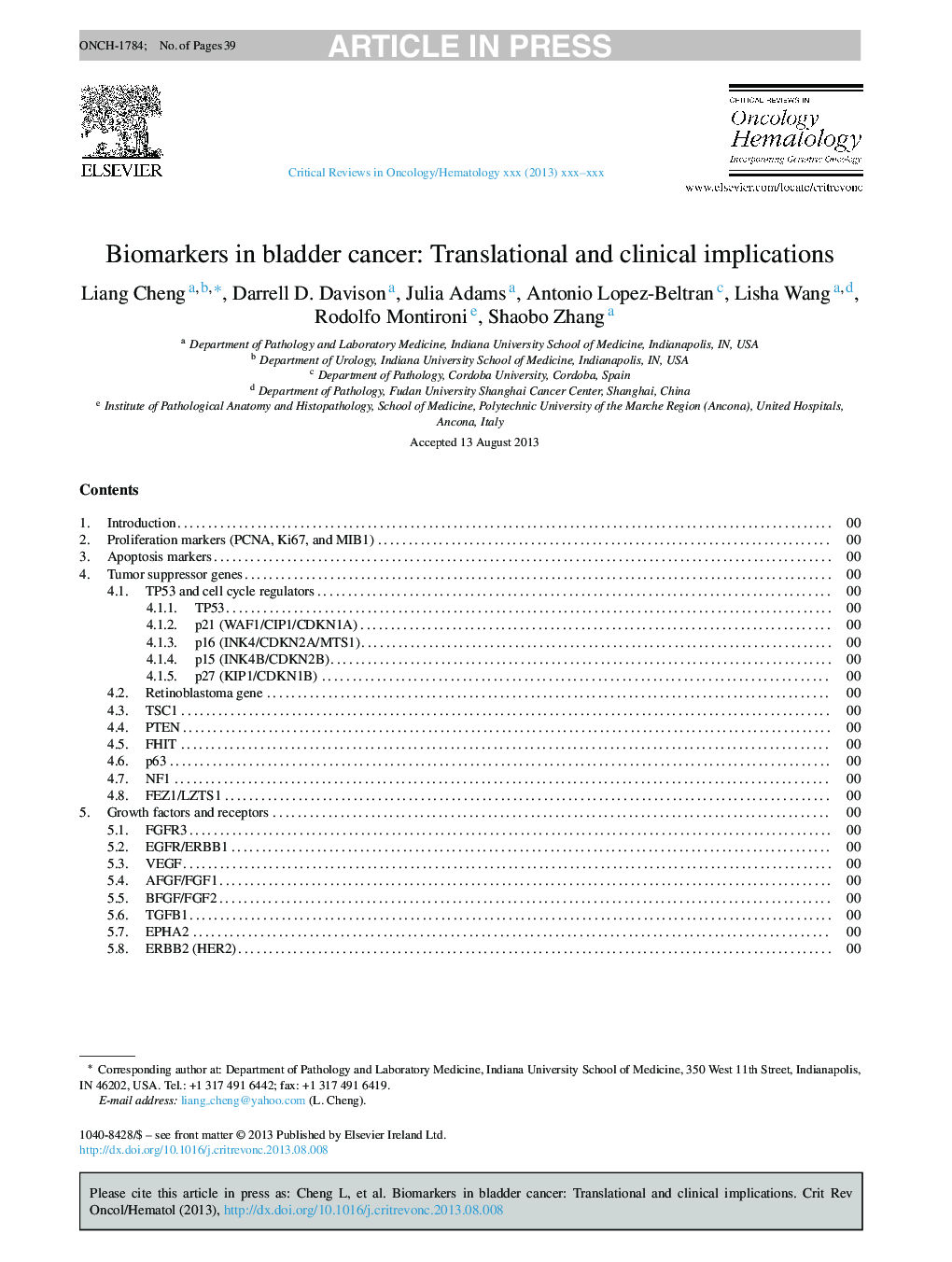| Article ID | Journal | Published Year | Pages | File Type |
|---|---|---|---|---|
| 6113665 | Critical Reviews in Oncology/Hematology | 2014 | 39 Pages |
Abstract
Bladder cancer is associated with high recurrence and mortality rates. These tumors show vast heterogeneity reflected by diverse morphologic manifestations and various molecular alterations associated with these disease phenotypes. Biomarkers that prospectively evaluate disease aggressiveness, progression risk, probability of recurrence and overall prognosis would improve patient care. Integration of molecular markers with conventional pathologic staging of bladder cancers may refine clinical decision making for the selection of adjuvant and salvage therapy. In the past decade, numerous bladder cancer biomarkers have been identified, including various tumor suppressor genes, oncogenes, growth factors, growth factor receptors, hormone receptors, proliferation and apoptosis markers, cell adhesion molecules, stromal factors, and oncoproteins. Recognition of two distinct pathways for urothelial carcinogenesis represents a major advance in the understanding and management of this disease. Nomograms for combining results from multiple biomarkers have been proposed to increase the accuracy of clinical predictions. The scope of this review is to summarize the major biomarker findings that may have translational and clinical implications.
Related Topics
Health Sciences
Medicine and Dentistry
Hematology
Authors
Liang Cheng, Darrell D. Davison, Julia Adams, Antonio Lopez-Beltran, Lisha Wang, Rodolfo Montironi, Shaobo Zhang,
